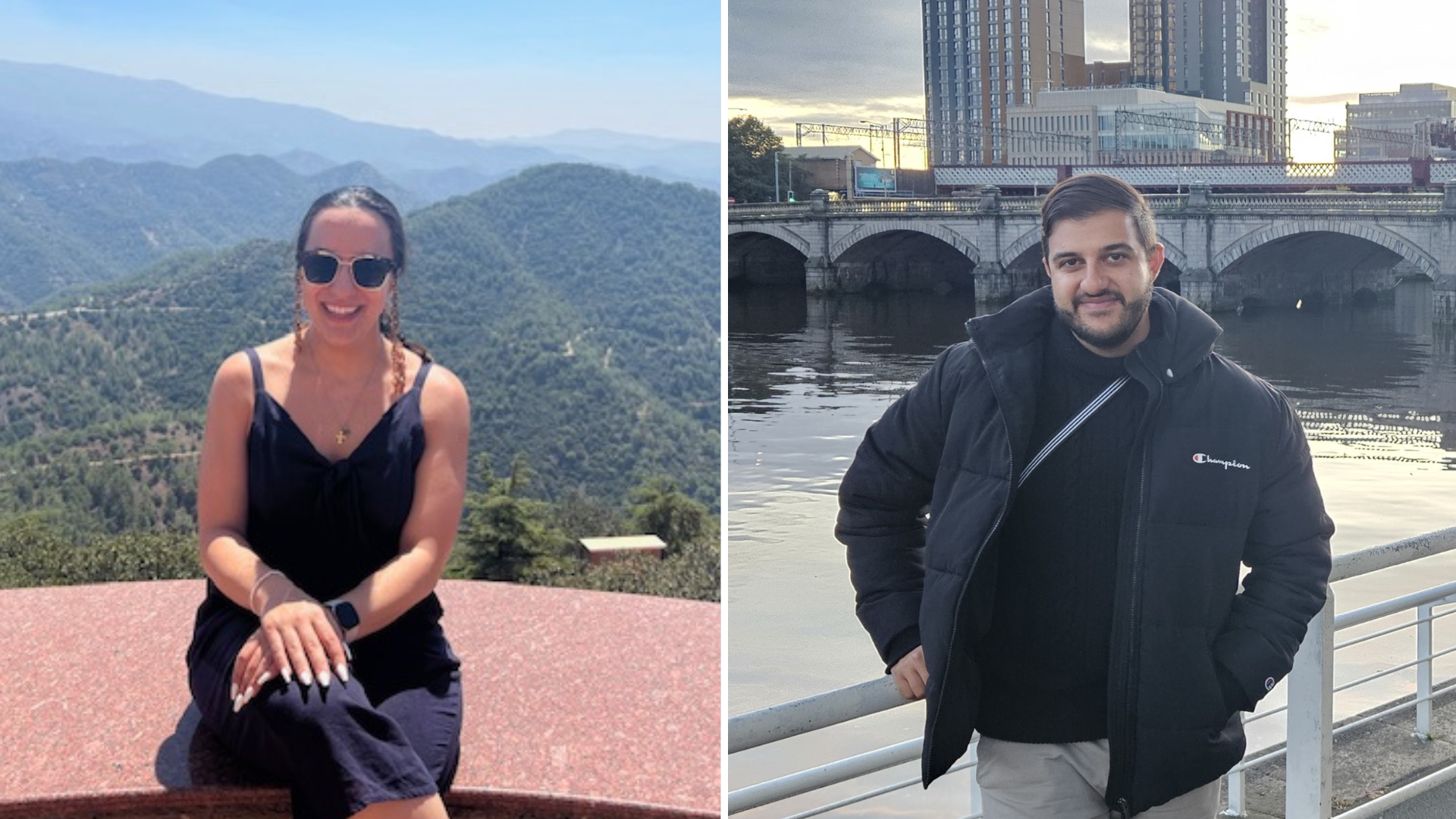Young Cypriot Australians, born decades after the Turkish invasion of Cyprus in 1974, say they are grappling with the conflict’s enduring legacy.
As the first generation of refugees ages, this new wave of Cypriot Australians are racing against time to preserve and digitise the stories of their elders. Beyond remembrance, they are seeking land rights, and leveraging their skills and education to advocate for a future their parents could only dream of – a reunited Cyprus.
Eva Ioannou, 25, Social worker, Wollongong
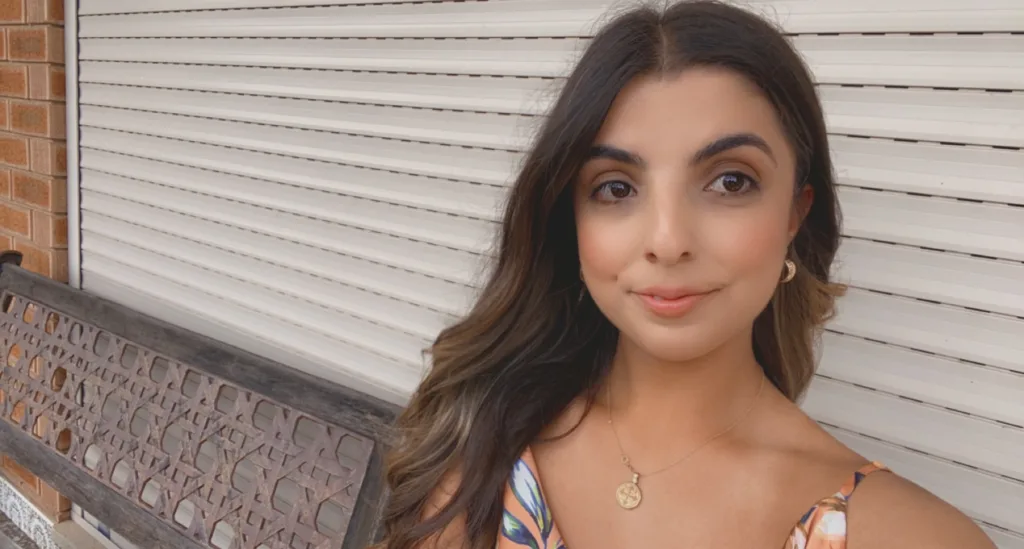
Eva embodies the spirit of a young Cypriot Australian deeply connected to heritage.
“The knowledge of the invasion forms a crucial part of my identity. Hearing stories of people in my family and community who are able to hold onto their culture despite adversity, instilled in me a profound respect for their strength and determination,” Eva states.
“It has been a significant project for the youth of our community to digitally archive the experiences of the Turkish invasion from our elderly. In this way we were able to create and maintain digital archives of documents, photos, videos and personal testimonies related to the invasion. This ensures that the information is preserved and accessible to future generations,” she says, adding that the awareness of events that took place “fosters a sense of responsibility to advocate for justice and reconciliation, honouring the struggles of my ancestors while working towards a better future for Cyprus.”
She says these stories encourage her “to stay informed and engaged” with the Cypriot community both in Australia and abroad. Her contribution is noteworthy, and she is currently Vice President of the Australian/New Zealand chapter of NEPOMAK, a Cypriot youth organisation.
Eva would like the Australian government to recognise the invasion’s illegality.
“Being home to the second largest number of Cypriots outside Cyprus, there are many ways in which the Australian government can support Cyprus in finding a resolution to its conflict. The first, and in my opinion the most important, would be for Australia to continue to recognise the illegal invasion of Cyprus,” Eva says, urging the Australian government to also advocate for the Cyprus issue in international organisations such as the United Nations, the Commonwealth of Nations and other relevant bodies.
“Through active advocacy, the Australian government can also take a firm stance against the illegal occupation of Northern Cyprus and support policies that aim for the withdrawal of foreign troops and settlers from the island.”
- Souvlaki or sheftalies? Definitely sheftalies
Vasilis (William) Panayi, 28, Sales Rep and Souvlaki pop-up co-owner, Wollongong
William’s grandparents hail from Farmakas, Pano Lakatamia and the occupied village of Agridaki.
“My father was a refugee who settled in Anthoupoli,” William shares, highlighting the personal impact of the Turkish invasion on his family.
Growing up with his mother after his parents’ separation when he was eight, his father returned to Cyprus and has since passed away.
“I am trying to go through our deeds and land titles to be sorted on the occupied sides. My father and his siblings have passed their rights to us, and we need to get them signed off to our names,” he says.
The process is complex, compounded by bureaucratic challenges, further complicated by his name – Vasili in Greek and William in English. Despite the difficulties, he is driven to pursue his rights by a sense of legacy.
“It’s not the money. Not that we can do anything with it. We can’t go and build, but we can take a loan for land on the free part of the island or wait for reunification,” he explains.
William’s active involvement in NEPOMAK has been a significant aspect of his journey, having served as Secretary in the Australia and New Zealand Executive Committee. Attending the NEPOMAK Australia and New Zealand Summit in 2024 was a transformative experience.
“I got closer to Cyprus when I was in the environment. For someone to be passionate about what they are, they need to immerse themselves,” he explains.
William’s passion for his heritage extends to advocating for a resolution to the Cyprus conflict. He believes that the Australian government should take a more active role.
“The government needs to address it formally in parliament with all members there. Money talks, unfortunately, in politics, but we need to stand on moral ground and understand that this island has been illegally occupied for 50 years now,” he argues.
William also highlights the importance of unity among Cypriots, including Turkish Cypriots.
“They are still citizens of Cyprus, like they were when we were cut in half,” he notes, emphasising the need for collective efforts towards resolving the conflict.
- Souvlaki or Seftalies? Souvlaki because of the pop-up, Seftalies are delicious but ‘fasaria’
Stephanie Demetrios, IT, Melbourne
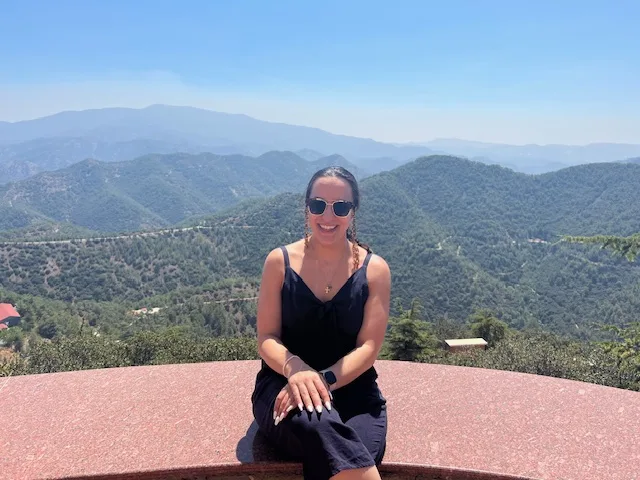
Passionate about keeping the cultural memory of her Greek and Cypriot heritage alive, Stephanie is often seen volunteering at events. Her father hails from Tsamanatas village in Epirus and her mother is from Larnaca. Stephanie embraces her shared Greek heritage.
“We are stronger when we work together,” she says, dispelling any notion of division between Cypriot and Greek Australians.
She emphasises open dialogue with the Cypriot Australian community.
“Being part of the conversation and being curious go a long way in ensuring we can productively collaborate with other members of our community,” she says.
However, her call to action extends beyond her immediate circle. Stephanie urges the Australian government to take a “more vocal and active approach,” especially in cases such as Turkish-Cypriot leader Ersin Tatar’s visit to Australia.
Stephanie has a deep personal connection to Cyprus, having visited the island nation four times. She fondly recalls getting lost in the mountains and meeting welcoming locals who “invited me in, and spoke to me about their lives, over coffee and generous servings of glyko tou koutaliou (spoon sweets).”
This spirit of community is also evident at Australia’s Cypriot events. Describing her experience at the Cyprus Community Festival in Adelaide, Stephanie highlights the “great atmosphere,” cultural performances, and “delicious food.”
Looking to role models, Stephanie finds inspiration in both Australia and Cyprus. She admires Annita Demetriou, the youngest person and first female Speaker of the House of Representatives of Cyprus.
“I have been inspired by her communication, work ethic and tenacity,” Stephanie shares.
- Souvlaki or Seftalies? Both! A mix is best
Lucas Anastasiou, 22, Political Studies student, Deakin University Greek Society Secretary, Melbourne
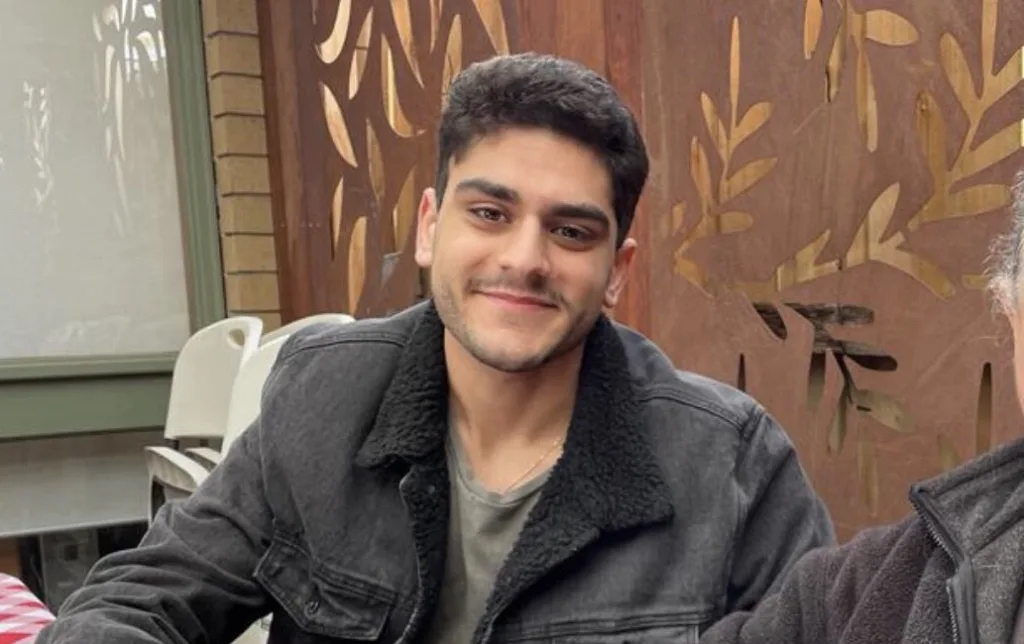
Having lived in Melbourne his entire life, Lucas’ Greek, Cypriot, and Syrian heritage significantly shape his outlook.
He states, “I’ve discussed the invasion of Cyprus with my parents in detail. For our immediate family, we were not directly affected. My grandfather came to Australia in 1950 and my father was born here.”
However, the broader impact on his family and friends is evident.
“We have many family members and friends who served in the military and defended the country against the invasion. As a result, many of my cousins abroad are currently also serving,” he explains.
Lucas highlights the ongoing impact of the invasion: “The horrors of what happened in 1974 still continue to affect Cypriots every day. Sons must always be ready to fight and, if need be, die. Families are always in fear of another war.”
His grandfather’s experiences under British rule further illustrate Cyprus’ troubled history.
“He told stories of discrimination against Cypriots, including his own brothers, by the British colonial forces. He too described a time where Cypriots were once friendly. He was trained as a carpenter by a Turkish-Cypriot man. He found it regretful that the people became enemies,” Lucas says.
He calls for stronger action from the Australian government: “I would personally like to see a greater condemnation of the Turkish occupation by the Australian government. As a UN member, we have an obligation to stand against what is unlawful. No, Australia doesn’t recognise Northern Cyprus, but we do not actively do anything to change, to push for reunification. It’s an insult to the memory of those who were killed, those who lost everything.”
- I must add, Sheftalies have the edge!
Marie Trikkis, 28, Customer Service, Wollongong
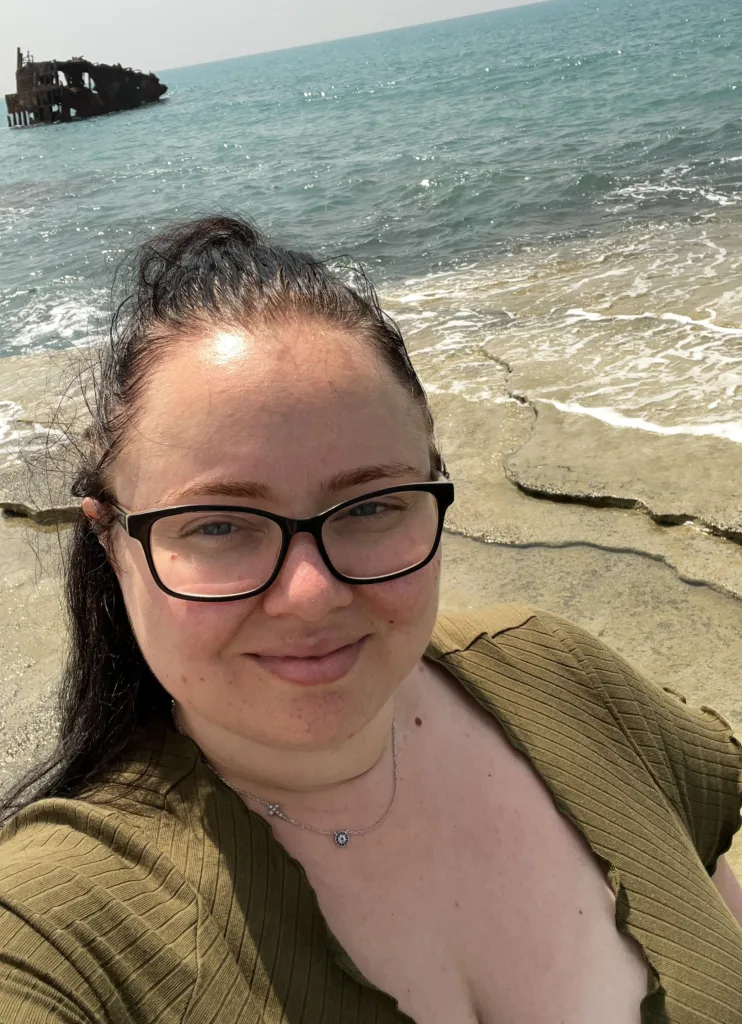
Marie’s roots trace back to Vatili, Cyprus.
“I have had many conversations about the Turkish invasion with not only my grandparents, but my aunt as well. I learned a lot about their personal experiences and struggles at the time as well as their experiences moving to Australia,” she says.
These conversations have given her a deep understanding of the day the tanks rolled through their village, the harsh living conditions her family endured, and their poignant return to the village after the war.
Her commitment to preserving these memories extends beyond her own family.
“A few of the youth in the Wollongong community are taking the time to interview the older generation of Cypriots so that we can share their stories and experiences for the youth to understand more of what our families went through both during the war and migrating to Australia,” she says.
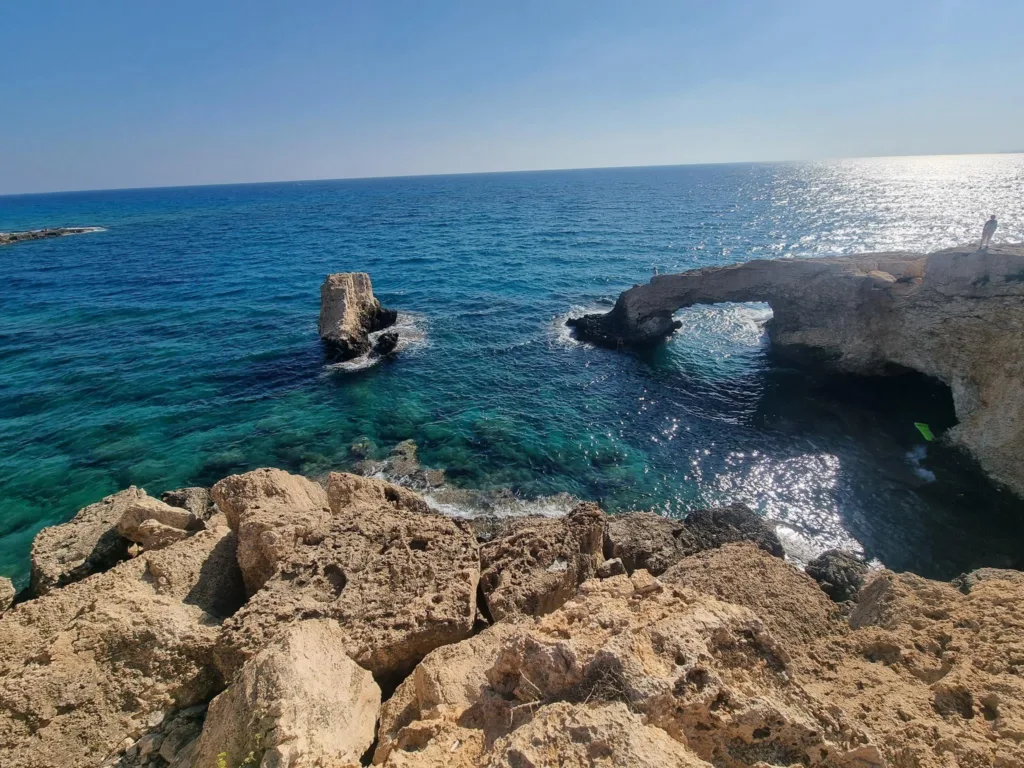
Marie is also passionate about fostering greater engagement between the Australian government and the Cypriot diaspora.
“I would like to see the Australian government engage with the Cypriot diaspora in Australia to leverage their insights and support for peace initiatives,” she asserts.
Last year, Marie visited Cyprus for the first time, an experience that deeply moved her.
“The most surprising thing I experienced was visiting my yiayia’s old village with her. Seeing what is left of her home and the amount of pain she was in revisiting was very overwhelming,” Marie says.
- Souvlaki or Sheftalies is hard. Both?
Chris Kessaris, 27, Civil Engineer, Darwin
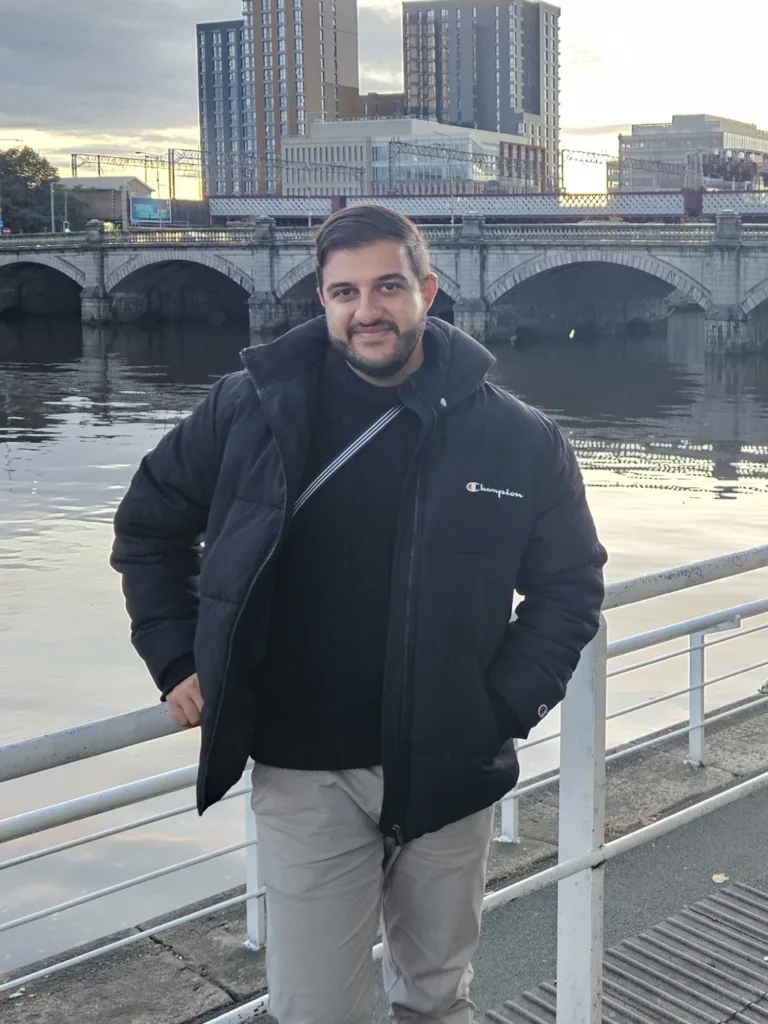
Through his family’s stories and his personal experiences, Chris has developed a strong sense of identity and a desire to advocate for the resolution of the Cyprus conflict.
“Both my mother and father were born in Cyprus. My mother’s family is from a village called Panagra in Kyrenia, and my father’s family is from a village called Trachonas in Nicosia,” Chris explains.
Growing up in Australia, Chris has always been aware of his Cypriot heritage, but it was the stories shared by his grandfather, or pappou, that brought the historical context of the Turkish invasion to life.
“Before my pappou passed away, he shared his story and experience about the Turkish invasion. In 1974, during the Turkish invasion, he and his family were kicked out of their family home in Trachonas, Nicosia (North Cyprus). People had lost everything they owned apart from the clothes that they were wearing,” Chris recounts.
His grandfather’s harrowing experience of being captured, tortured, and displaced left a lasting impression on Chris.
“He had been taken to Turkey, put into jail, tortured with no food and showers. After three and a half months, they were given showers and clothes and returned to the northern (occupied) part of Cyprus, where after three days they were released back to the Republic of Cyprus,” he says.
Chris believes it is crucial for older Cypriot Australians to share their stories about the invasion.
“Many of the older Cypriot Australians migrated from Cyprus to Australia after the invasion due to being displaced from the North side of the island and wanted to start a new life to provide better opportunities for their family – children and grandchildren,” he says.
He emphasises the need to document these stories to ensure the history is not lost: “Many of the younger generation of Cypriot diaspora who are growing up in Australia now may not be aware of their grandparents’ experience of the invasion and the impact that this had on them.”
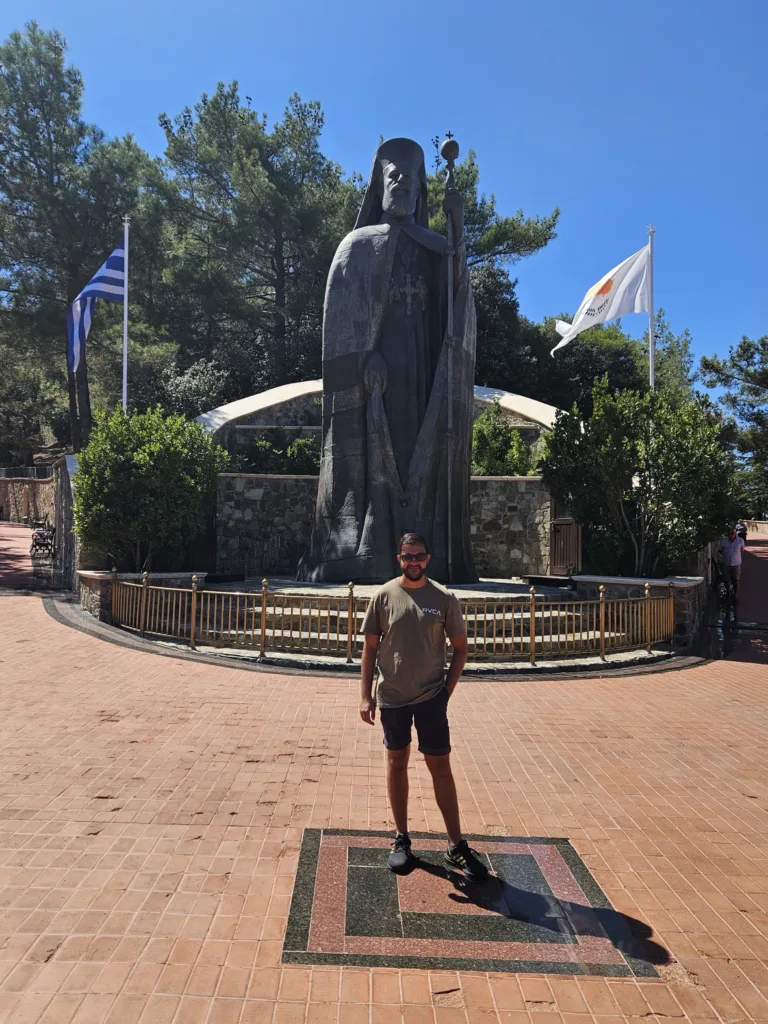
Chris is passionate about raising awareness of the Cyprus issue and believes the Australian government should take a more active role.
“I would like the Australian government to recognise that Turkey’s invasion of Cyprus was an illegal invasion and violated all rules under international law. The self-proclaimed ‘Turkish Republic of Northern Cyprus’ is an illegally recognised state, and 37% of the country is controlled and illegally occupied territory by Turkey,” he asserts.
He suggests that raising awareness among the Australian and international community is the first step towards supporting a resolution: “This will provide additional support from other countries to the UN Security Council’s resolutions and a viable solution to the Cyprus problem through the establishment of a bi-communal, bi-zonal federation.”
Chris has visited Cyprus numerous times and feels a deep connection to the island.
“It is a beautiful island filled with vibrant culture, rich history, mouthwatering food, and beautiful scenery,” he says.
However, visiting the occupied northern side of Cyprus has been a poignant experience: “The experience of visiting the North side of Cyprus and their houses left a heart-wrenching feeling. The north side of the island was unrecognisable compared to the south, and it was saddening to imagine what the north side of the island once was.”
- Souvlaki or Sheftalies? Souvlaki. (Or both in a mix pita!)
